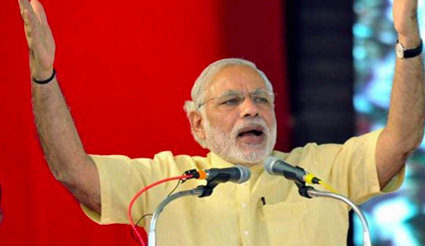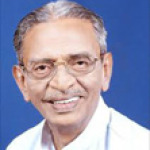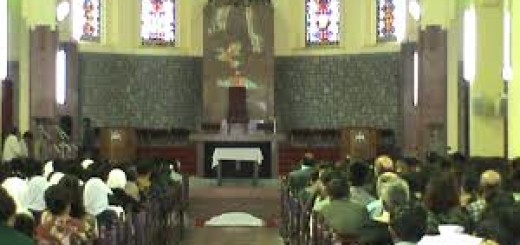Modi’s Idea of India!

Conflicting political, constitutional, ideological imperatives will continue to generate paradoxes
Ashutosh Varshney (Indian Express – February 5, 2016)
(Pic:- Prime Minister Narendra Modi addressing a public meeting in Coimbatore on Tuesday – PTI )
(Note: Democracy is a talking shop. To survive in power handsomely, the top executive must connect with all sections of people, especially with the minorities and those who are affected most for good or bad. Modiji is a man blessed with the gift of the gab. Similar is the case with Obama in US. The latter is quick to react on all grave happenings in the country, irrespective of whether they affect the country as a whole or only a section of the people. Modi, is often too selective and slow to react on issues that affect badly the image of his party and his government. Here lies the paradox in Modi’s Character  which endears him to his party, admirers and supporters (Only 31% voted for his party) at the cost of alienating him from his critics or those who just suffer him. People are carried away by eloquence at first, slowly the listeners compare, if the speaker walk the talk, if he does what he says. That accounts for the slow but steady drop in Mod’s popularity. The election results from Delhi to Bihar is the sure indicator to what direction the mighty tree leans to an eventual, possibly fall. In short one has to perform or perish. james kottoor, editor)
which endears him to his party, admirers and supporters (Only 31% voted for his party) at the cost of alienating him from his critics or those who just suffer him. People are carried away by eloquence at first, slowly the listeners compare, if the speaker walk the talk, if he does what he says. That accounts for the slow but steady drop in Mod’s popularity. The election results from Delhi to Bihar is the sure indicator to what direction the mighty tree leans to an eventual, possibly fall. In short one has to perform or perish. james kottoor, editor)
My previous column (‘Modi’s idea of India-1’, January 27) interpreted the external features of PM Narendra Modi’s idea of Indian nationhood. Modi, I argued, is redefining the idea of India by emphasising the blood ties of India’s “diaspora” with the “homeland” — politically, if not legally. His concept is closer to the German-Japanese conception of nationhood than the French-American one, which relies on birth in a territory, not blood ties. India’s Constitution-makers had rejected the German-Japanese model.
I did not comment on whether Modi’s attempted redefinition was right or wrong. To my mind, whatever theoretical position one takes on blood ties as a principle of national belonging, mobilising diasporic energy for India is an exercise in pragmatism. India’s diaspora has risen in affluence and is beginning to exercise its weight in politics. When Modi spoke at New York’s Madison Square Garden, Indian Americans recruited more than 40 congressmen and senators and also a few governors to share the stage with him. Something like that was impossible without the community’s electoral or financial clout. If such clout can be leveraged for India’s economic development, or for the enhancement of India’s international power, the basic canons of realism would endorse such a move.
Let me now turn to the internal dimensions of Modi’s idea of India. Historically, two master narratives — based on caste and religion — have defined the idea of India. Several politicians have attempted to break out of these narratives, but Indian politics, with unfailing regularity, returns to its customary grooves. “Dams are the temples of the modern age” was Nehru’s attempt to turn economic development into a master narrative, but dams could not become temples. Modi, too, campaigned on development, but before long, reconversion of Muslims and Christians, beef bans and a Dalit suicide overtook the development discourse. India awaits the day when economic issues (beyond inflation) would determine mass politics.
What is PM Modi’s record on caste and religion?
On caste, the Constituent Assembly had accepted that Hindu society had historically heaped multiple indignities on its lowest orders, especially Dalits, and the grave historical wrongs could be remedied through affirmative action. Words of contrition were not enough; ameliorative state action was necessary. Modi has repeatedly endorsed these ideas. “Daliton ko avsar dena hamara dayitva hota hai (It is our responsibility to give opportunities to Dalits),” said he in Parliament, adding that “aarakshan Ambedkar ki dirghdarshita ka prateek hai (affirmative action was a sign of Ambedkar’s farsightedness)”. But Modi’s silence on the actions of his colleagues mars his record. He did not have to speak against the RSS chief, Mohan Bhagwat, when Bhagwat expressed doubts about affirmative action. Bhagwat, after all, is not in the BJP. But ministers in Modi’s cabinet, directly responsible to him, have also taken anti-Dalit positions.
The suicide of Rohith Vemula is a case in point. Reportedly, Rohith liked films that critiqued Hindu nationalism and clashed with the leading Hindu nationalist student organisation, the ABVP, on campus. After one such clash, some ministers of the Modi government pressured the university, whose main funds come from the Central government, to expel Rohith as a student, which it eventually did. The expulsion ostensibly led to the suicide of Rohith, who wanted to “write like Carl Sagan”, but bemoaned that “the fatal accident” of his birth had haunted him in the university.
Politically, in such cases, as scholars of ethnicity have argued, it is the battle over “meaning” that supersedes the “true cause” of death. Symbolically, here was a direct clash between Hindu nationalism and Dalit welfare. Modi sympathised with the mother who lost a son, but did not critique the actions of his colleagues. Would Modi defend Dalits only if they agreed with Hindu nationalism? The Constitution does not require agreement with Hindu nationalism, but it does require that public authorities listen to the “still sad music” of Dalit suffering and do something about it. The accident of Dalit birth should not be fatal.
On religion, too, Modi’s record is not fully consistent with the idea of India, but the inconsistency is disagreeable to both his left-liberal critics as well as Hindu nationalist ideologues.
The Constitution makes religious pluralism an unmistakable centrepiece of the idea of India. At Wembley, Modi vigorously defended pluralism. “Vividhta hamari shakti hai (Pluralism is our strength),” he argued, celebrating among other things the vividhta of “khan paan” and “veshbhoosha” (pluralism of diet and dress). And in the parliamentary debate on Constitution Day, he endorsed sarva panth sambhava (equal respect for all religions). This goes against Hindu nationalism, which has always believed that pluralism is a cause of India’s weakness, while aikya (assimilation) would make India strong. Hindu nationalism insists on the assimilation of non-Hindu communities into India’s Hindu centre. Modi’s statements on pluralism must have puzzled the RSS as much as his surprising trip to Pakistan, which immediately produced a defence of “Akhand Bharat” by an RSS ideologue now in the BJP.
But the irony of Modi’s arguments was also all too obvious. Only a few weeks before he defended pluralism at Wembley, mobs led by Hindu nationalists had lynched a Muslim man to death on suspicion of beef-eating. It took Modi more than a week to break his silence. And when he did so, he did not critique those who killed. He only blamed the state government for not protecting the life of a civilian. A belief in the pluralism of diet should have triggered a condemnation of the mob that lynched, not only a critique of the state government. Modi did the latter, not the former.
What explains these inconsistencies?
A Hindu nationalist government functions under three different imperatives: Ideological, political and constitutional. The ideological imperative seeks to turn India into a Hindu nation. The political imperative, however, requires election victories. Each year, India has elections in some state or the other, and the ideology of Hindu nationalism does not necessarily win elections, as Modi discovered in Bihar. Social coalitions, calling for ideological moderation, are often necessary. Finally, India’s Constitution does not say India is a Hindu nation; India belongs to all religious communities. The RSS chief may call India a Hindu nation, but a PM sworn to the Constitution cannot easily do that. Modi has repeatedly called India’s Constitution the “only sacred document” for him and, at least as PM, he has not yet called India a Hindu nation.
These conflicting imperatives will continue to generate paradoxes and contradictions in Modi’s political conduct. Consistency should not be expected.(The writer is Sol Goldman Professor of International Studies and the Social Sciences at Brown University, where he also directs the India Initiative at the Watson Institute. He is a contributing editor for ‘The Indian Express’.)
















